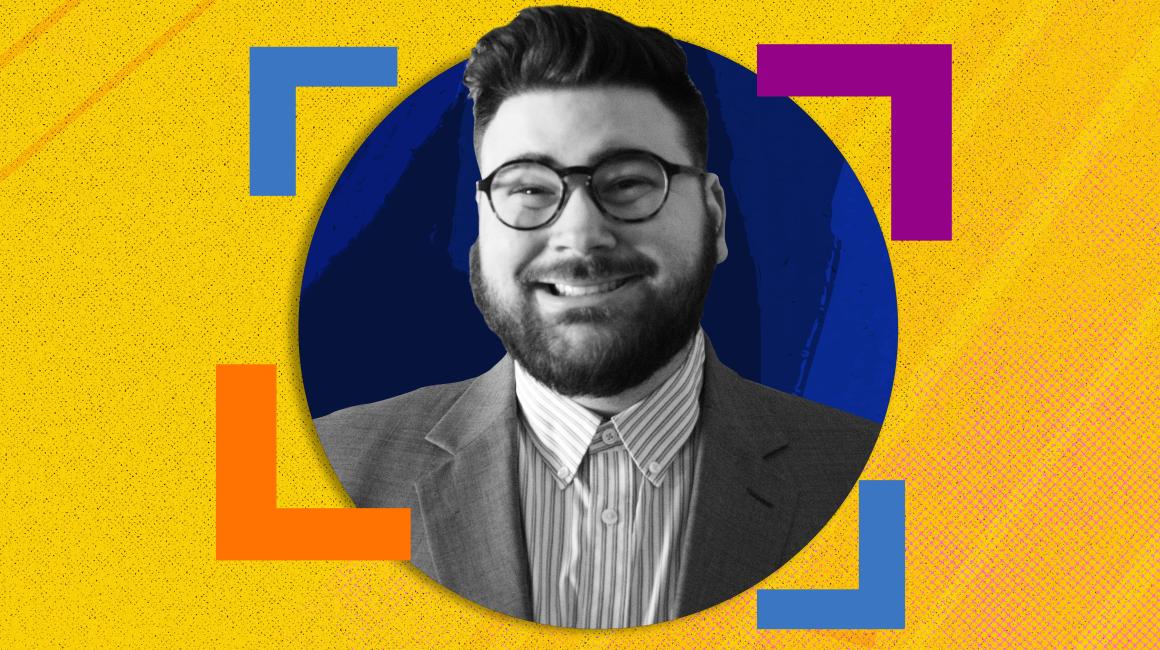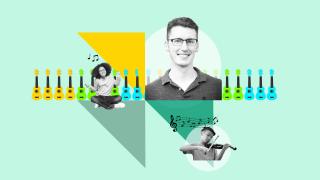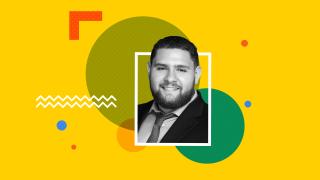
In a world where people are often told to “be yourself,” what happens when you can’t?
UM-Dearborn psychology graduate student Charlie Giraud wants to know. So he’s spent more than a year researching the psychological effect of identity concealment in minority communities — and in particular, people who identify as LGBTQ+.
“I am a member of the LGBTQ+ community. I have so many friends and loved ones who go to great lengths to conceal parts of themselves. Some are at peace with this, but many conceal because of fear for safety and wanting to ‘fit in’ to the world around them,” Giraud says. “I’ve done this too — watched to make sure my hands weren’t moving too much, being careful not to sound a certain way when I talked. It’s very stressful. So what is the effect of this stress?”
Giraud recently presented his “Discrimination, Concealment, & Multiple Minority Status within LGBTQ+ Populations” research during UM-Dearborn’s Three-Minute Thesis (3MT) Competition; he came in first place. Giraud says his thesis adviser Psychology Associate Professor Michelle Leonard encouraged him to present and he appreciates the research support from both Leonard and Women’s and Gender Studies Associate Professor Amy Brainer.
The 3MT Competition, originally developed by The University of Queensland, cultivates academic, presentation and research communication skills with students presenting their work succinctly and in an easy-to-understand way. The virtual campus event was sponsored by the Office of Graduate Studies and the Office of Research. Giraud will remotely present later this month at the Midwestern Association of Graduate Schools 3MT Competition.
Giraud says there’s a lack of research on this topic and he’s glad to have a platform like 3MT to share his research. He says membership in LGBTQ+ community is heavily reliant on identity-centered factors. Because of this, many people within this population face forms of individual (perceived) and institutional (systemic) discrimination, which often leads to concealment.
He says people in the LGBTQ+ community anecdotally know this. But data is needed to academically validate these experiences and move inclusive institutional policies forward.
“LGBTQ+ individuals who have faced forms of discrimination are more likely to have adverse physical and psychological health consequences,” he says. “They often turn to various coping mechanisms, such as concealment of their identity — for protection and safety — which often contributes to lower levels of reporting acts of discrimination through legal avenues due to fear of identity disclosure and other factors. This isn’t good for the individual or for society. Change is needed.” Giraud says his research is ongoing and he’s also looking how being a member of multiple minority groups — for example, if someone identifies as Black and gay — influences concealment.
Giraud, who plans to pursue a doctoral degree and become a therapist specializing in LGBTQ+ needs, looks forward to presenting his work to a larger audience. He says his research is helping him grow professionally and personally.
“There is much to be concerned about. But looking at these issues is also empowering. You realize you are not alone; identity concealment is a common experience. There’s some comfort in that,” he says. “And by doing this presentation, I am no longer concealing — I am being myself and putting myself out there. I hope others find inspiration in that.”





